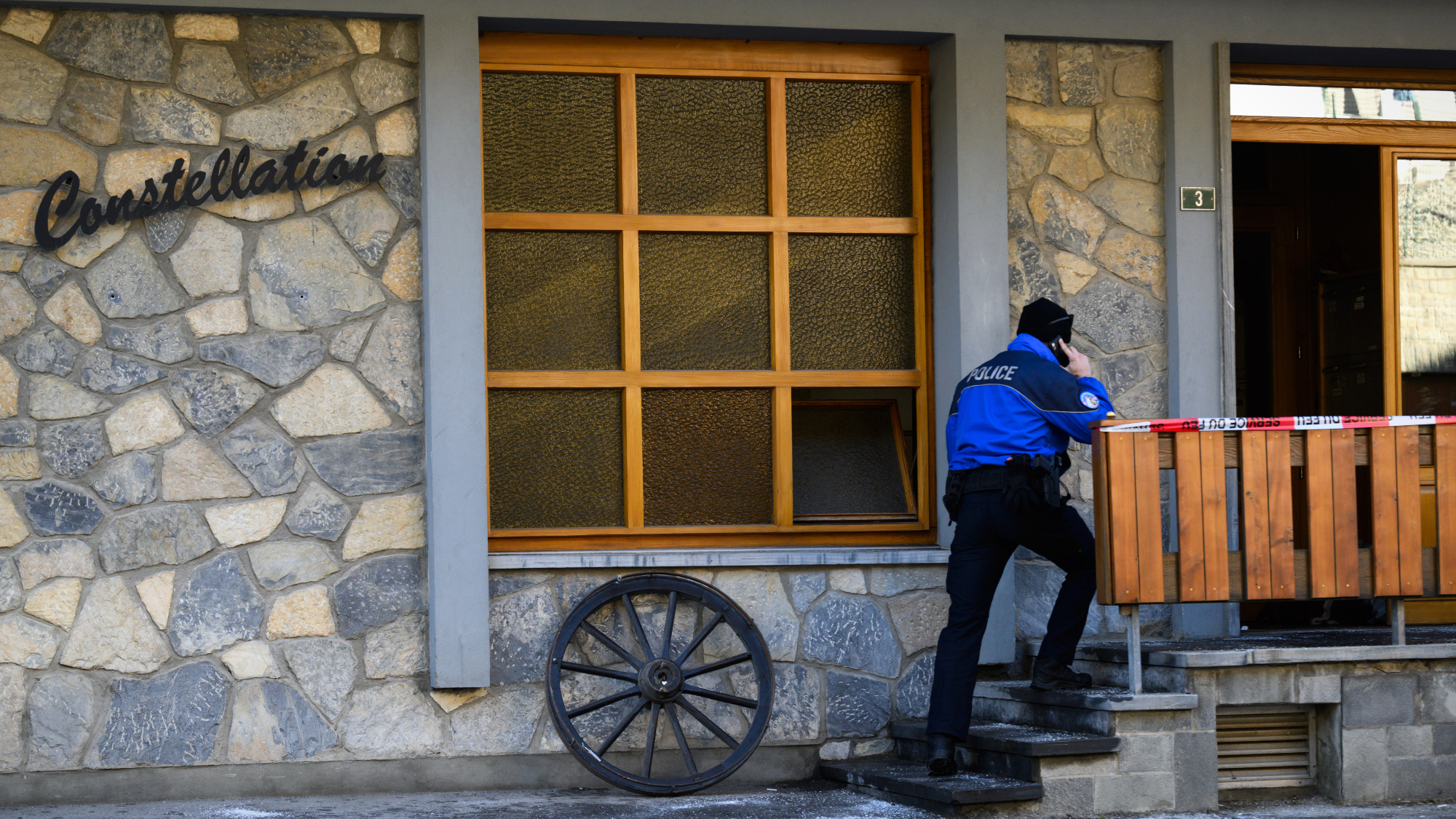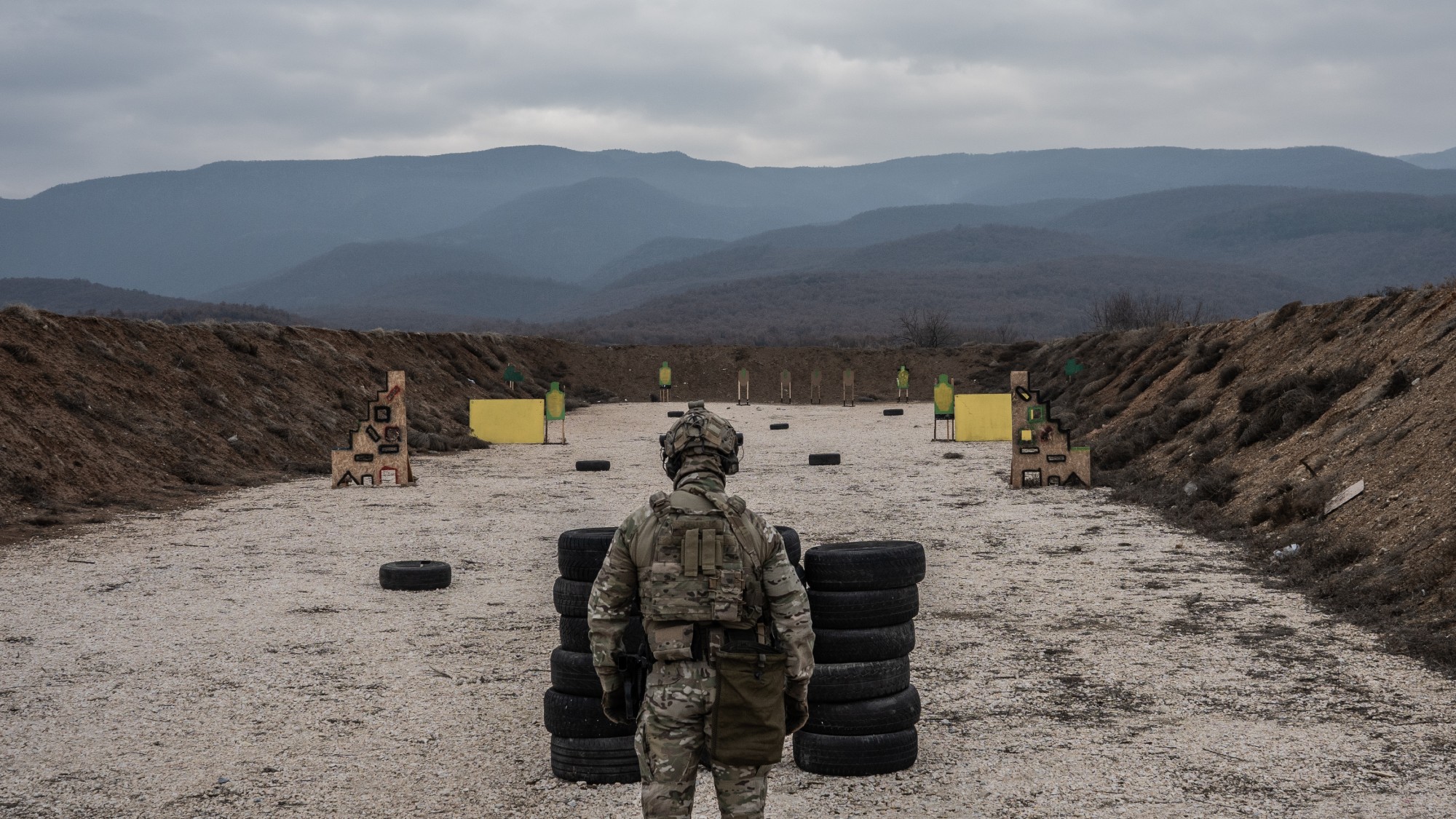The rising demand for nuclear bunkers
Fears of nuclear war have caused an increase in shelter sales, but experts are sceptical of their usefulness

A free daily email with the biggest news stories of the day – and the best features from TheWeek.com
You are now subscribed
Your newsletter sign-up was successful
Private nuclear bunkers, "from small metal boxes to crawl inside of to extravagant underground mansions", are in high demand and the market is increasing, said The Associated Press.
In 2023, countries with nuclear weapons spent a combined $91.4 billion (£72.7 billion) on their arsenal, and "global security leaders are warning nuclear threats are growing". In response, more people are investing in at-home shelters, hoping to dodge theoretical warfare.
Some experts say they are unnecessary and unhelpful against blasts or nuclear fallout, and that they "create a false perception that a nuclear war is survivable", but "buyers say bunkers offer a sense of security", said AP. That's partially why manufacturers are seeing a spike in sales.
The Week
Escape your echo chamber. Get the facts behind the news, plus analysis from multiple perspectives.

Sign up for The Week's Free Newsletters
From our morning news briefing to a weekly Good News Newsletter, get the best of The Week delivered directly to your inbox.
From our morning news briefing to a weekly Good News Newsletter, get the best of The Week delivered directly to your inbox.
The bunker interest isn't limited to anxious individuals. Governments are taking note of threats, too, with officials taking stock of nuclear shelter networks.
The business of bunkers
When Russia attacked Ukraine with a hypersonic missile in November, Ron Hubbard’s phone started to ring nonstop.
Chief executive of what he calls the world's largest bunker manufacturing company, Hubbard told AP his shelters are "good for anything from a tornado to a hurricane to nuclear fallout". His products sell for an average of $500,000 (£397,883) apiece, and he claims he usually sells at least one per day.
The US market for bomb and fallout shelters is expected to hit $175 million (£139.3 million) by 2030, reported AP, and other countries are also seeing a spike in demand. In Spain, "fears of the growing threats from war and a rise in catastrophic natural disasters" like floods have bolstered the market, said the i news site.
A free daily email with the biggest news stories of the day – and the best features from TheWeek.com
Spain is formulating a new national security plan that will tell citizens what to do in case of war. Meanwhile, "wealthy clients" across the country are buying under-home bunkers, with one company saying a "middle-class family" took out a loan to have one installed.
Governments taking inventory
This surge in bunker demand comes as Swiss leaders start to upgrade the country’s stock of 370,000 nuclear shelters. Residents of Switzerland are entitled to a place in one of these and this £200 million project will ensure that existing shelters are operational.
"The country already has bunker space for each of its nine million inhabitants – a situation long dismissed as paranoia by its neighbours – but it will now update and improve old structures", said The Times.
But Germany, which "dismantled many of its Cold War bunkers in recent decades" now has space for only 480,000 of its population – just 0.57% – and is also responding to warnings from intelligence experts.
In response, officials are now preparing a "list of bunkers that could provide emergency shelter for civilians", and compiling it into a "digital directory" so that people can find them using an app, reported The Guardian.
-
 El Paso airspace closure tied to FAA-Pentagon standoff
El Paso airspace closure tied to FAA-Pentagon standoffSpeed Read The closure in the Texas border city stemmed from disagreements between the Federal Aviation Administration and Pentagon officials over drone-related tests
-
 Political cartoons for February 12
Political cartoons for February 12Cartoons Thursday's political cartoons include a Pam Bondi performance, Ghislaine Maxwell on tour, and ICE detention facilities
-
 Arcadia: Tom Stoppard’s ‘masterpiece’ makes a ‘triumphant’ return
Arcadia: Tom Stoppard’s ‘masterpiece’ makes a ‘triumphant’ returnThe Week Recommends Carrie Cracknell’s revival at the Old Vic ‘grips like a thriller’
-
 US, Russia restart military dialogue as treaty ends
US, Russia restart military dialogue as treaty endsSpeed Read New START was the last remaining nuclear arms treaty between the countries
-
 What happens now that the US-Russia nuclear treaty is expiring?
What happens now that the US-Russia nuclear treaty is expiring?TODAY’S BIG QUESTION Weapons experts worry that the end of the New START treaty marks the beginning of a 21st-century atomic arms race
-
 Iran and US prepare to meet after skirmishes
Iran and US prepare to meet after skirmishesSpeed Read The incident comes amid heightened tensions in the Middle East
-
 Which way will Trump go on Iran?
Which way will Trump go on Iran?Today’s Big Question Diplomatic talks set to be held in Turkey on Friday, but failure to reach an agreement could have ‘terrible’ global ramifications
-
 US nabs ‘shadow’ tanker claimed by Russia
US nabs ‘shadow’ tanker claimed by RussiaSpeed Read The ship was one of two vessels seized by the US military
-
 Fire at Swiss ski resort bar kills 40, injures 115
Fire at Swiss ski resort bar kills 40, injures 115Speed Read
-
 Is Europe finally taking the war to Russia?
Is Europe finally taking the war to Russia?Today's Big Question As Moscow’s drone buzzes and cyberattacks increase, European leaders are taking a more openly aggressive stance
-
 South Africa wraps up G20 summit boycotted by US
South Africa wraps up G20 summit boycotted by USSpeed Read Trump has been sparring with South Africa in recent months